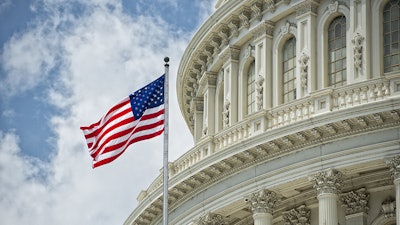
U.S. Rep. Earl Blumenauer introduced legislation April 17 that would provide tax relief to the cannabis industry by allowing state-legal cannabis businesses to take deductions like any other legal business.
The Small Business Tax Equity Act would create an exception to Internal Revenue Code Section 280E that would allow business operators to take deductions related to the sale of cannabis.
“State-legal cannabis businesses are denied equal treatment under 280E,” Blumenauer, also the founder and co-chair of the Congressional Cannabis Caucus, said in a public statement. “They cannot fully deduct the cost of doing business which means they pay two or three times as much as a similar non-cannabis business. This grotesquely unfair treatment incentivizes people to cut corners. If Congress wants to get serious about supporting small businesses and ending the illicit cannabis market, it is commonsense that we allow legal cannabis operations to deduct business expenses, just like any other industry.”
Under current law, Section 280E of the federal tax code bars cannabis operators from deducting everyday expenses related to running their businesses, including rent, utilities and payroll.
Reps. Nancy Mace, R-S.C., Barbara Lee, D-Calif., and Dave Joyce, R-Ohio, have co-sponsored the Small Business Tax Equity Act with Blumenauer to remedy this situation.
“The Small Business Tax Equity Act is critical legislation that aims to repeal the oppressive taxation of marijuana businesses under IRC 280E, which unfairly denies them ordinary business deductions and credits,” Mace said in a public statement. “State-licensed cannabis companies deserve fair treatment and the ability to operate on a level playing field. The American people agree, and it is time our laws reflect it.”
While 280E remains an obstacle for cannabis businesses at the federal level, some states have taken matters into their own hands to provide tax relief for the industry. The New Jersey Legislature, for example, approved legislation this year that would decouple state and federal tax provisions and allow state-licensed businesses to deduct certain expenses on their state tax returns.
Cannabis advocates have applauded Blumenauer and company for introducing legislation to tackle the issue at the federal level.
“The unfair application of the outdated 280E provision on state-licensed cannabis businesses is preventing our industry from reaching its full economic potential and our ability to successfully replace criminal markets in accordance with the will of the voters and state legislators that have implemented modern state marijuana programs across the country,” National Cannabis Industry Association CEO Aaron Smith said in a public statement. “We commend Congressman Blumenauer and the bill’s original co-sponsors for leading this narrowly crafted, sensible legislation that would resolve this unforeseen consequence and bring our tax code into the 21st century.”
“NORML commends the sponsors of this legislation for their efforts to end the unjust federal overtaxation of licensed, state-regulated cannabis businesses throughout the country,” NORML Political Director Morgan Fox said, also in a public statement. “Allowing them to take the same federal tax deductions that most other businesses enjoy will facilitate new opportunities in the legal cannabis industry and make it more competitive with the unregulated market, which will directly benefit consumer health and public safety.”
Join us this year at the Paris Las Vegas Hotel & Casino for Cannabis Conference, the leading education and expo event for plant-touching businesses.


























